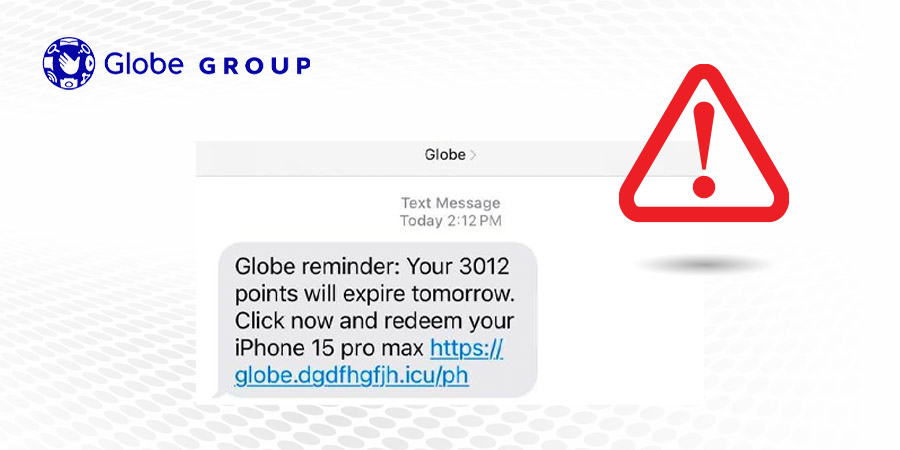Globe Telecom Inc. has confirmed that it has removed all clickable links from messages sent to its customers in response to spoofing reports indicating that its channels are being impersonated by scammers.
Globe Consumer Mobile Business Head, Darius Delgado, announced the change in a virtual briefing. He cited reports that customers in Metro Manila areas have been receiving spoof messages purporting to be from 8080 or Globe, making it difficult to distinguish between genuine and fraudulent messages.
“Since last week, we have been removing all clickable links across messages we send to our customers, so that they are able to identify which messages are legit and which ones are spoofed… If there’s a clickable link, that’s not legit,” he said.
“This way, our customers will be protected as their security and safety are very important to us because we want our brands in the market to be the most trustworthy ones,” Delgado added.
Spoofing Schemes
Delgado asserted that the scheme utilizes illegal equipment, such as the international mobile subscriber identity (IMSI) catcher, alongside fake cell towers or base stations. These tools are employed to compel phones to downgrade to 2G networks.
In today's digital age, this practice has gained prominence due to its implications regarding privacy and security. IMSI catchers and fake cell towers pose significant threats as they enable unauthorized parties to intercept communications, track users' movements, and potentially access sensitive information.
As society becomes increasingly reliant on mobile devices for communication, commerce, and accessing sensitive data, the misuse of such technologies raises concerns about personal privacy, corporate espionage, and national security. Therefore, understanding and addressing these risks is essential to safeguarding individuals, businesses, and society as a whole in the digital era.





